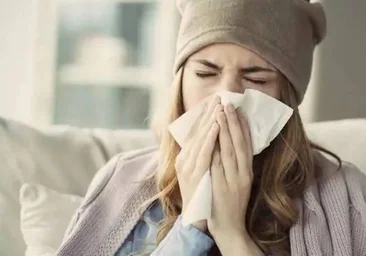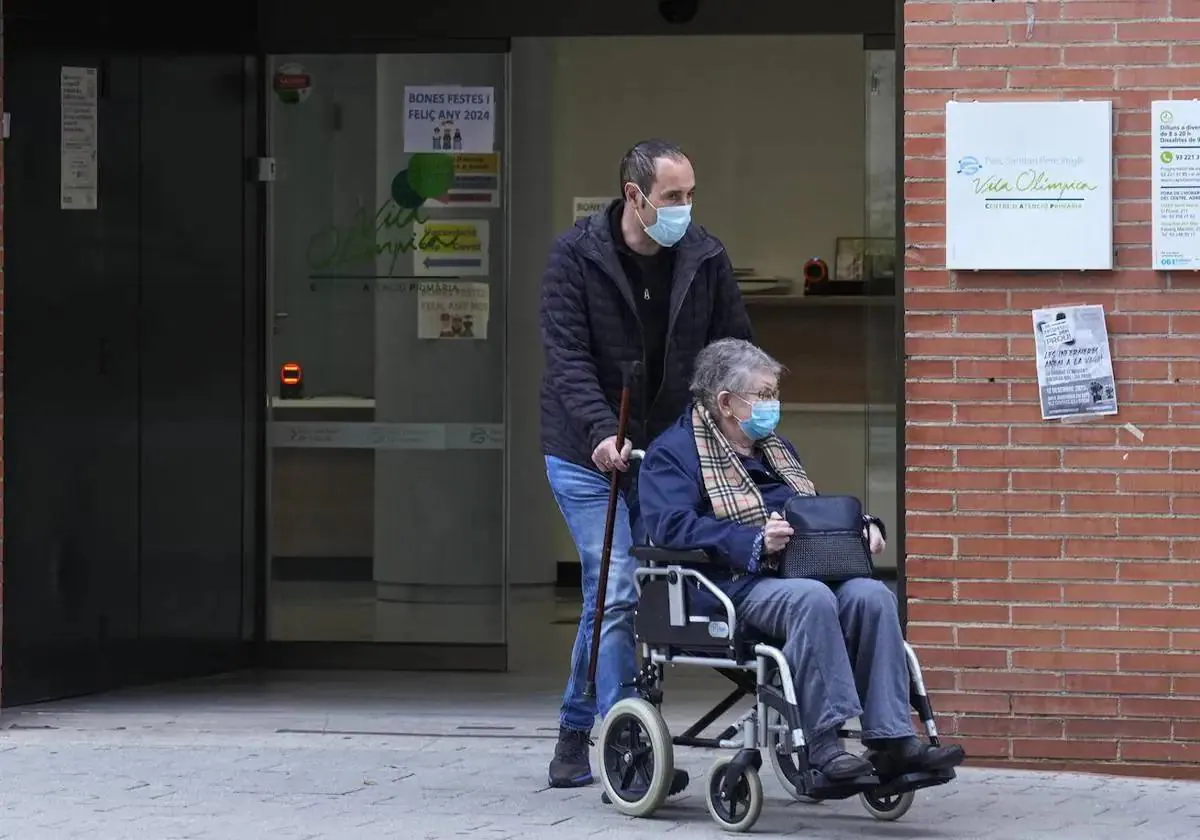Spanish government to reintroduce the mandatory use of face masks in all health facilities
The measure is set to be approved on Wednesday after the Minister of Health failed to achieve a consensus of the regions at a meeting they held this Monday
Alfonso Torices
Madrid
Monday, 8 January 2024, 10:53
This coming Wednesday (10 January), the Ministry of Health will impose the mandatory use of masks in all health facilities in Spain. This government decision, according to news agency EFE, comes after the Minister of Health did not achieve her objective of doing it by consensus after calling an urgent meeting of the regions at the Interterritorial Council of the National Health System (CISNS) to face the challenge of "the spikes of respiratory viruses" that have been reported in recent days. Mónica García proposed to the regions that they impose the obligation to use a face mask inside all health facilities for the duration of the current epidemic.
However, the Minister of Health did not achieve her objective and initial information from her meeting with the regions indicated that a consensus was not possible and that the majority of the regions, which individually have the powers to order this measure, said that each of them should decide, according to the evolution of the epidemic in their own areas, whether the public should wear masks or not, whether it is only a recommendation or an obligation, and in which places and which people should do so. The Ministry of Health gave the regions time to study the proposals and respond but tonight EFE has reported that the decision has been taken out of their hands and the national government in Madrid will instead impose the mandatory use of masks in all health facilities in Spain on Wednesday.
If this hadn't come about, only three Spanish regions, the Valencian Community, Murcia and Catalonia, were prepared to declare the use of face masks mandatory inside all health facilities and socio-health residences. A fourth region, Aragón, also established the obligation to use face masks, but only for professionals in health centres, hospitals and nursing homes.
Six other regions, Galicia, Cantabria, Navarra, Asturias, La Rioja and Euskadi, had limited themselves to requesting the use of masks in health centres and residences only as a recommendation and six more, Madrid, Andalucía, the Balearic Islands, the Canary Islands, Extremadura and Castilla y León, were only prepared to advise the use of face masks for people who have symptoms of respiratory infections.
Related article
How can I tell if I have the flu, a common cold or Covid-19?
Another of the measures that the minister proposed, and which is being studied, "is the self-certification of three days' sick leave, for those who have a minor illness", García said in an interview on Onda Cero radio. In her opinion, in the early stages of illness, "it should not be necessary to go to the doctor, and yet we are somehow forcing them to go for a sick leave report. This is a measure that has already been implemented in many countries, and which is based on the responsible declaration during the first three days".
"Cause for concern"
The minister said that the incidence of flu in recent days "is a cause for concern" as "we are at much higher levels of influenza than in recent years". She also stated that the problem is not so much the infections as the potential collapse of the public health system.
García admitted that this is a "worrying" flu epidemic, of greater intensity than that of previous years and with numbers of infected people similar to those before the pandemic. Infections are quickly escalating, with a 75% increase in positive diagnoses in the last week of the year and a 61% increase in hospitalisations due to flu infection in the same period. Covid and the respiratory syncytial virus (RCV), the other two major causes of contagion, have already doubled the epidemic peak and although they still generate many hospital admissions, they are close to declining.
The incidence of acute respiratory infections is especially high in regions such as Castilla-La Mancha, which, with 1,709 cases of flu per 100,000 inhabitants, almost doubles the national average (953) and in others such as the Valencian Community (1,500), Asturias (1,318). and Castilla y León (1,209), all of them with diagnosis rates much higher than the rest of the country.
Experts expect that the epidemic of new flu cases will continue to escalate at least until the third or fourth week of January, since to the current large numbers we will have to add the thousands of infections produced at family gatherings on New Year's Eve and Three Kings and, above all, the avalanche that the return to school will generate, since children are the group with the highest rate of infections by influenza A.
These forecasts suggest that the pressure on health centers and hospitals will continue to increase throughout the month and will continue in the first weeks of February.
Among the possible reasons for the greater intensity of the current winter flu epidemic, almost all experts agree on two. The first is the low levels of flu vaccination this autumn-winter, since it is estimated that the coverage of risk groups has not reached 65% in most regions when the World Health Organization recommends a minimum of 75%. The second is the sharp decrease in the use of masks, hydroalcoholic gels and frequent hand washing, all of them very effective preventive methods to minimise infections and which became widespread during the Covid pandemic to avoid infections, but which at the same time protected against other viruses such as the flu.

